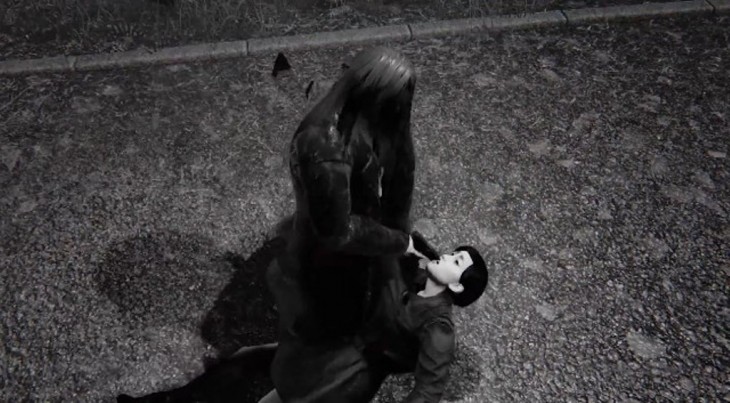With the current explosion of “Black Lives Matter,” accompanied by the Baltimore and Ferguson riots; it is very clear that now is the time to speak up and take fair advantage of your First Amendment rights.
Exercising those same rights is Destructive Creators, who have single-handedly produced one of the most controversial video games of all time — Hatred. With this current spread of controversy surrounding the exercise of Freedom of Speech, one can’t help but wonder… how far is too far?
Hatred is an “isometric shooter,” where the player is placed in the role of a mass serial killer. With no apparent plot as the game’s foundation, the only real motivation behind the killings stems from the main character’s sheer “hatred” for humanity. In this game, players will roam the streets of New York, massacring civilians and committing mass homicide. In actual gameplay footage, the antagonist is seen grabbing police officers up from the floor as they beg for their lives, only to greet them with a bullet to the brain.
What are the ingredients for a successful video game? One may argue that a large budget, team of talented artists and unique subject matter all hold heavy significance in the creation of such a game. With a mere 20 person team of Polish developers and a smaller budget size, it isn’t hard to believe that if Destructive Creators had created a different game that was less controversial than Hatred, that it would be at higher risk of being unsuccessful.
This begs the question; was the prediction of this controversy the reasoning and motivation behind the creation of Hatred? In other words, did Destructive Creators create Hatred as a way to secure revenue? Chances are that the answer to this question would most certainly be, yes.
Conservatives around the globe have trumped up the violence of video games for generations. Claiming that most games are inherently violent and should be subjected to higher scrutiny in comparison to other forms of artistic expression. With the simulation factor of video games, this testament against their composition holds sway. Basically; since video games place the player in the eyes of the aggressor, it is seen as a more severe form of violence subjection.
If you yourself are an avid player of video games, you know that not all games are violent. Not only are most games completely harmless, but they are still subjected to the ESRB rating system. Hence, such a conservative view on the effect of violent video games is seen to be a subjective view, since the success of the product is in the hands of the consumer. If you don’t like it, don’t buy it.
Hatred however, is not the only one of its kind. Trend setting this type of isometric, shallow-yet-violent gameplay was Postal, developed by Running with Scissors. In addition, video games are not the only medium that has been known to walk a fine line between obscenity and violence. From the beginning of cinema production, films have been used as way to spread controversy as a way to ensure revenue. Take The Kiss, Baby Doll, The Passion of the Christ, The Exorcist and Rosemary’s Baby for example.
One thing that is unique about Hatred, is its relevance to society. More terrorist attacks have arisen in the recent decade, both on our own soil and foreign territory. More Americans are returning home from war, suffering from Posttraumatic Stress Disorder (PTSD). Mass murder continues to plague America’s schools, and almost every week we hear about a new development in juvenile terrorists threats.
To be fair, violence has been a critical part of our global identity. We are not strangers to war, aggression or even mass murder. We may gasp in awe once we hear about the slaughter of a small family, but unless that family lives close to home, most people forget about it the next week. Unlike this observed madness, Hatred is completely observable in its entirety. The spread of technology has allowed the mayhem of Hatred to reach multiple countries — not just America and the countries of Europe.
Will the creation of a game such as Hatred be a trigger for those suffering from depression or PTSD in our society? Will the mentally unstable, introverts of the world gain access to this game and see it as a catapult from imagination, into reality? Better yet, are we accepting Hatred as a higher standard of expression? Is mass violence moving away from “cultural taboo” into “modern entertainment”?
One thing is certain; Destructive Creations holds the match to a large bomb — let’s just hope that it doesn’t explode in our faces.
Discover more from The Koalition
Subscribe to get the latest posts sent to your email.




